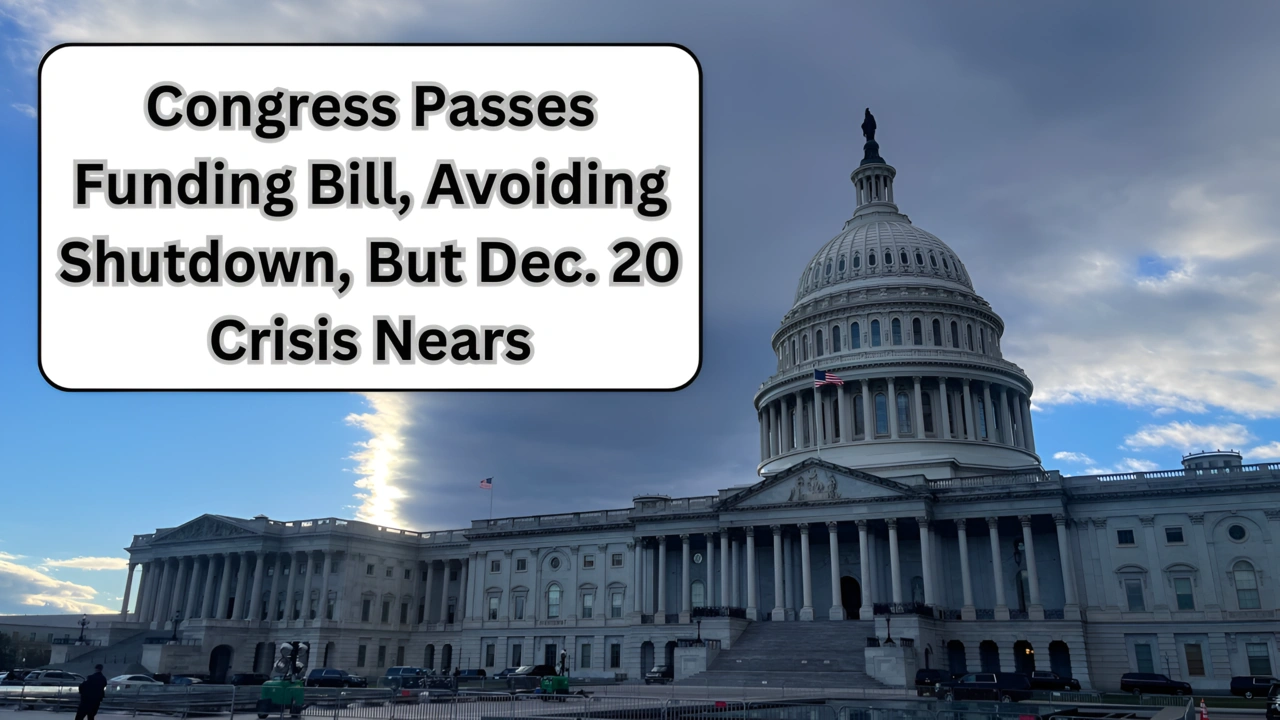As the presidential and Congressional elections draw closer, just over a month away, no political party wants to take the blame for shutting down the federal government, especially given the potential consequences of denying pay and work to millions of federal employees and military personnel. Legislators in both the U.S. House of Representatives and Senate were keenly aware of the potential political backlash, especially with the elections in November, and thus overwhelmingly passed a funding bill with strong votes was 341-82 in the House and 78-18 in the Senate.
President Biden swiftly signed the bill ahead of the critical September 30 deadline, preventing a government shutdown and ensuring the federal government would remain funded through December 20. This temporary solution sets the stage for the post-election period, which could bring a shift in control of the Executive and Legislative branches, potentially reigniting the shutdown debate and bringing the debt ceiling issue into focus as it looms in 2025.
The bill ensures funding for key federal departments at their current levels, including:
- Defense
- Financial Services-General Government
- Homeland Security
- Labor-Health and Human Services-Education
- Legislative Branch
- State and Foreign Operations
- Military Construction-Veterans Affairs
- Agriculture-Food and Drug Administration
- Transportation-Housing and Urban Development
- Energy-Water
- Interior-Environment
- Commerce-Justice-Science
While the immediate shutdown threat was avoided, businesses that rely on the federal government and its employees should understand the implications of a potential government shutdown and how it could impact their operations.
What is a Government Shutdown?
A government shutdown occurs when the government cannot spend money requiring annual appropriations, which disrupts its ability to pay employees and maintain the operation of various government facilities. Essential workers such as air traffic controllers are required to work without pay during a shutdown. However, under the Government Employee Fair Treatment Act of 2019, these federal employees are entitled to back pay once funding is restored.
Federal contractors, however, are not guaranteed back pay under this law, though individual companies can choose to offer compensation.
Which Agencies and Processes Would be Affected by a Shutdown?
A shutdown would cause partial or full closures in various agencies and programs, potentially affecting businesses in the following ways:
- Small Business Administration (SBA): The SBA, which provides crucial financial assistance to small businesses, would likely be unable to process loan approvals, delaying critical funding for small businesses.
- Internal Revenue Service (IRS): While tax payments and filed returns would continue to be accepted, businesses should expect delays in receiving refunds, including those for employee retention tax credits. IRS toll-free hotlines would also be unavailable, leading to delays in client EIN verifications and general correspondence.
- E-Verify: Employers using the federal E-Verify system to confirm employee eligibility for employment would face delays, as the system would be offline during a shutdown. Businesses in states where E-Verify is mandatory should check with their state for alternative verification options.
- Other Impacts: Non-essential services would be reduced, including customer service, audits, and food/environmental inspections. Federal agencies like OSHA, the Department of Labor, and the National Labor Relations Board might temporarily halt operations, leading to delays in business-related processes and inspections.
- Medicare and Medicaid: While these programs are not funded by annual appropriations, delays could occur in the distribution of replacement cards and enrollment adjustments for participants.
How Could Businesses Be Impacted by a Shutdown?
Beyond government operations, there are several indirect effects businesses may experience:
- Federal Tourism Sites: National parks, museums, and other federally funded tourist attractions may close, affecting businesses dependent on foot traffic from federal employees or tourists, especially in Washington, D.C., and other major cities where federal spending impacts local economies.
- Air Travel: While air traffic controllers are deemed essential, a shutdown could disrupt air travel if some employees refuse to work without pay, as was seen in a previous shutdown. This could create problems for business travel.
- Unemployment Programs: States could face challenges in maintaining their unemployment programs, as federal funding would cease during a shutdown, potentially leading to delays or alternative funding sources.
- Stock Market & Economic Impact: While short government shutdowns generally do not affect the stock market, a longer shutdown could disrupt key economic data, like job growth and housing reports, influencing stock prices and retirement plans (401k). Additionally, a prolonged shutdown could lead to reduced consumer spending, negatively impacting small businesses.
What Won’t Be Affected by a Government Shutdown?
Despite the disruptions, some federal services remain unaffected:
- Social Security Benefits: Social Security payments to recipients will continue.
- Medicare & Medicaid: While enrollment and card distribution may be delayed, ongoing services and open enrollment should not be impacted.
- Postal Service: The U.S. Postal Service will continue its mail deliveries without interruption.
- Congress: Members of Congress will continue to receive pay during a shutdown.
- Healthcare Marketplace: Federal exchange activities for healthcare coverage will proceed, ensuring individuals can still access the healthcare marketplace.
What’s Next?
As the December 20 deadline approaches, accounting professionals should prepare by discussing their clients’ financial situations and ensuring they are aware of any potential funding options or delays. Paychex is closely monitoring developments in Congress and will continue to provide updates on government funding and its impacts on businesses. We remain committed to helping employers navigate these challenges and offering resources to help businesses stay resilient through uncertain times.



